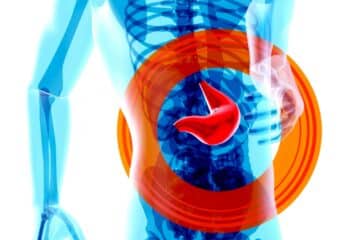Exploring Colon Cleanses: Myths, Methods, and What Really Works
Hey friends, let’s talk about something that’s been buzzing around wellness circles for ages: colon cleanses. You know, that idea of giving your gut a good rinse to feel lighter, fresher, and maybe even a bit more energized? I’ve had friends swear by them after a heavy holiday season, and others who roll their eyes at the whole concept. As someone who’s always curious about health trends but likes to keep things real, I figured it was time to dig in and share what I’ve learned. We’ll cover the basics, the hype, the risks, and the science – all without the fluff. Think of this as a cozy chat over coffee, where we get honest about whether a colon cleanse is worth your time (or your money). By the end, you’ll have a clearer picture to decide for yourself. Let’s jump in!
What Exactly Is a Colon Cleanse?
At its core, a colon cleanse is all about flushing out your large intestine – that’s the colon – to remove built-up waste, toxins, or whatever else might be lingering in there. The idea is that over time, our diets and lifestyles can leave behind gunk that the body doesn’t fully eliminate on its own, leading to sluggishness or other issues. Picture it like spring cleaning for your insides.
Typically, this involves introducing fluids or other substances to wash things out. For example, in a professional setting, a therapist might insert a tube into your rectum and pump in warm water, sometimes mixed with herbs or other additives, to loosen and expel the contents.[1]</สิน> It’s not as scary as it sounds if done right, but it’s definitely intimate! On the milder side, cleanses can mean taking oral supplements, drinking special teas, or even just upping your water and fiber intake to encourage natural elimination.
This practice isn’t new – it dates back to ancient Greece and Egypt, where people believed in balancing the body’s humors through purging.[2] Today, it’s popular in alternative medicine for detox purposes, but it’s also used medically, like prepping for a colonoscopy to get a clear view of the colon walls.[3] The key thing? Your colon is already pretty good at its job – it’s the final stretch of your digestive system, absorbing water and forming stool before sending it on its way.
Other Names You Might Hear
Colon cleanses go by a bunch of aliases, depending on who’s talking about them. You might hear “colonic irrigation,” which is the fancy term for that water-flushing procedure.[1] Or “colon hydrotherapy,” “colonic,” “colon therapy,” or even “hydro colon therapy.”[4] Some folks call it a “colon detox” or simply “colonics.” Enemas are a related but simpler version, often done at home with a smaller amount of fluid.[5] These names all point to the same goal: giving your gut a reset. Just know that while the lingo varies, the underlying idea is consistent – clearing out the pipes.
The Promised Benefits: What’s the Appeal?
Okay, let’s get to the juicy part – why do people do this? Proponents rave about a slew of perks. Top of the list? Detoxification. The theory is that toxins from processed foods, environmental pollutants, or undigested bits build up in the colon, and flushing them out can leave you feeling revitalized.[1] Many report a boost in energy, clearer skin, and even mental clarity after a cleanse. Weight loss is another big draw – you might drop a few pounds quickly from expelling waste, though it’s mostly water weight.[4]
Other claimed benefits include better digestion, relief from bloating or constipation, and a stronger immune system. Some say it helps with headaches, joint pain, or even mood swings by improving nutrient absorption and balancing gut bacteria.[6] In a world where we’re bombarded with ads for quick fixes, it’s easy to see the allure. Imagine starting fresh, like hitting the reset button on your body’s engine.
But here’s where I have to be straight with you: while these anecdotes sound great, the scientific backing is pretty thin. Reviews of studies show little to no evidence that colon cleanses provide these benefits for the average healthy person.[7] Your liver and kidneys are the real MVPs for detoxing, and the colon handles waste just fine on its own.[8] That said, if you’re dealing with chronic constipation, a gentle cleanse under medical guidance might offer short-term relief. Just don’t expect miracles.
The Drawbacks: Not All Sunshine and Rainbows
Now, for the flip side – and trust me, it’s important to weigh this carefully. Colon cleanses aren’t without risks, especially if done improperly or too often. One big concern is dehydration; all that flushing can pull water from your body, leading to dizziness or fatigue.[4] Electrolyte imbalances are another issue, which might cause cramps, nausea, or even heart problems in extreme cases.[1]
Infections are a real worry with professional colonics – if equipment isn’t sterilized, bacteria can hitch a ride.[9] More seriously, there’s a risk of bowel perforation (a tear in the colon wall) or disrupting your gut microbiome, that delicate balance of bacteria that keeps digestion humming.[5] Over-the-counter laxatives or supplements can lead to dependency, where your body forgets how to poop without help.
For folks with conditions like IBS, Crohn’s disease, or kidney issues, cleanses can exacerbate symptoms.[10] And honestly, some people end up with more bloating or discomfort post-cleanse than before. Medical experts, like those from Mayo Clinic and Cleveland Clinic, often advise against them for general health, saying the risks outweigh any unproven benefits.[1] If you’re tempted, chat with your doctor first – better safe than sorry!
What Does Traditional Chinese Medicine Say About Colon Cleanses?
According to TCM doesn’t typically focus on colon cleanses as a standalone practice the way Western alternative medicine does. Instead, TCM views digestion as part of a holistic system tied to the spleen and stomach meridians, which govern the transformation and transportation of food and nutrients. In TCM, the goal is balance if there’s stagnation in the digestive system – say, constipation or bloating – it’s seen as an imbalance of qi (energy) or dampness accumulating in the body.
TCM might address these issues with dietary adjustments, herbal formulas, or acupuncture to strengthen the spleen and move qi, rather than aggressive flushing. For instance, herbs like rhubarb root (da huang) or magnolia bark (hou po) are sometimes used to gently promote bowel movements, but always tailored to the individual’s constitution.[11] Over-cleansing can weaken the spleen’s qi, leading to fatigue or loose stools. TCM emphasizes moderation, suggesting that foods like warm broths, ginger, or fermented vegetables can support digestion naturally without disrupting the body’s harmony.

Photo by Dimmis Vart on Unsplash
Interestingly, TCM aligns with the idea of supporting the body’s natural elimination but is cautious about invasive methods like colonics. The body knows how to clear itself if given the right conditions – proper diet, stress management, and balanced energy flow. So, while TCM might not endorse colon cleanses as a go-to, it offers complementary practices to keep things moving smoothly, always with an eye on the whole body’s balance.[12]
Can You Do a Colon Cleanse Yourself?
Absolutely, you can try a colon cleanse at home, and many people do without heading to a spa or clinic. The good news is that DIY versions are often gentler and cheaper. But – and this is a big but – proceed with caution. Not everyone’s body reacts the same, and what works for your bestie might not suit you.
Start slow if you’re new to this. Listen to your body; if something feels off, stop. Hydrate like crazy, and avoid extremes if you have health issues. Pregnant? Nursing? On meds? Skip it or get a green light from your doc.[4] Home cleanses focus more on natural encouragement rather than aggressive flushing, which reduces risks. That said, if you’re aiming for something more intense like an enema, consider professional supervision to avoid mishaps.
Some Common Methods for a Colon Cleanse
There are tons of ways to approach this, from simple tweaks to more involved routines. Here’s a rundown of popular methods, starting with the easiest at-home options:
- Hydration Boost: Drink plenty of water – aim for 8-10 glasses a day. Water softens stool and keeps things moving naturally. Add lemon for a gentle detox vibe; it’s rich in vitamin C and aids digestion.[13]
- Saltwater Flush: Mix 2 teaspoons of sea salt in warm water and chug it on an empty stomach. It acts like a laxative, drawing water into the colon for a quick cleanse. Expect results in 30-60 minutes – stay near a bathroom![14]
- High-Fiber Diet: Load up on fruits, veggies, whole grains, and legumes. Fiber bulks up stool and sweeps the colon clean. Think apples, pears, broccoli, and oats. Resistant starches like green bananas or cooled potatoes are stars here too.[15]
- Juices and Smoothies: Go for a short juice fast with veggies like celery, kale, and ginger. They provide nutrients while giving your gut a break. Smoothies with flaxseeds or chia add fiber.[16]
- Probiotics and Fermented Foods: Yogurt, kefir, sauerkraut – these introduce good bacteria to support gut health. Not a flush per se, but they help maintain a clean, balanced colon.[17]
- Herbal Teas: Laxative teas with senna or peppermint can stimulate bowel movements. Use sparingly to avoid dependency.[18]
- Enemas: At home, use a kit to introduce water or coffee (yes, coffee enemas are a thing) into the rectum. It’s more direct but requires care to avoid irritation.[5]
For the pro level, colonic irrigation involves a specialist and machines for a thorough wash.[1] Supplements like psyllium husk or bentonite clay are also common, but check labels and start low.
Remember, combine these with exercise and stress reduction for best results. Walking or yoga can get things moving without any extras.
The Science Behind Colon Cleanses: Fact vs. Fiction
Alright, let’s nerd out a bit on the science – because knowledge is power, right? The concept stems from “autointoxication,” an old theory that undigested food ferments in the colon, releasing toxins that poison the body.[2] Sounds plausible, but modern science says nah. Your colon, liver, and kidneys are pros at detoxing naturally. The gut lining renews itself every few days, shedding old cells and waste.[8]
Studies? A 2009 review found no support for colon cleanses promoting general health.[7] Another from 2010 echoed that, noting limited evidence and potential harms.[19] For medical preps, like before colonoscopies, they’re effective and necessary.[3] But for everyday wellness? Not so much.
That microbiome I mentioned? Cleanses can wipe out good bacteria along with the bad, potentially leading to imbalances.[5] On the plus side, fiber-rich methods do support gut health by feeding beneficial microbes.[15] Overall, experts agree: Eat well, stay active, and your colon will thank you without the drama.
Wrapping It Up: Is It Right for You?
There you have it – colon cleanses demystified. They’re intriguing, sure, and might offer temporary relief for some, but they’re not the magic bullet they’re often hyped as. If you’re feeling backed up or curious, start with gentle, natural methods like more fiber and water. If it is still an issue try a easy, gentle supplement such as Nature’s Secret Cleanse. But always prioritize safety and consult a healthcare pro, especially if you have underlying conditions.
In the end, true gut health comes from sustainable habits: a balanced diet, regular movement, and listening to your body. Skip the extremes and embrace what feels good long-term. What are your thoughts? Have you tried a cleanse? Stay well, friends!
References
[1] Mayo Clinic: Colon Cleansing: Is It Helpful or Harmful?
[2] WebMD: History of Colon Cleansing
[3] Mayo Clinic: Colonoscopy
[4] WebMD: Colon Cleansing
[5] Harvard Health: The Dangers of Colon Cleansing
[6] MD Anderson: Colon Cleansing: Is It Safe?
[7] PubMed: Colon Cleansing: A Review of the Evidence
[8] Mayo Clinic: Detox Diets
[9] Keck Medicine: Colon Cleansing: A Dangerous Fad
[10] Cleveland Clinic: Colon Cleansing
[11] PubMed: Chinese Herbal Medicine for Constipation
[12] Acupuncture Today: TCM for Digestive Health
[13] Harvard Health: The Importance of Hydration
[14] WebMD: What to Know About a Salt Water Flush
[15] Mayo Clinic: Dietary Fiber
[16] Harvard Health: Juicing – Fad or Fabulous?
[17] Mayo Clinic: Probiotics
[18] WebMD: Senna
[19] PubMed: Safety of Colon Cleansing
[20] Cleveland Clinic: Colon Cleansing



